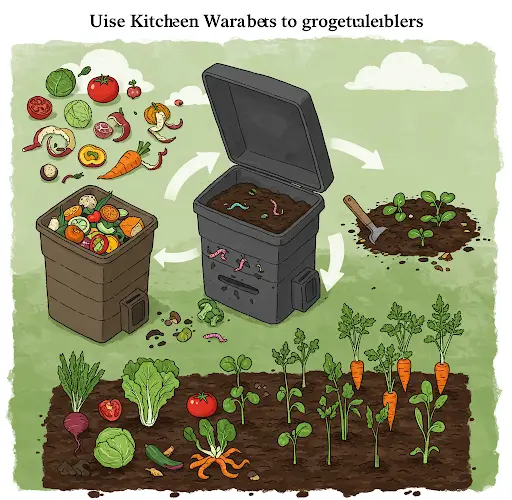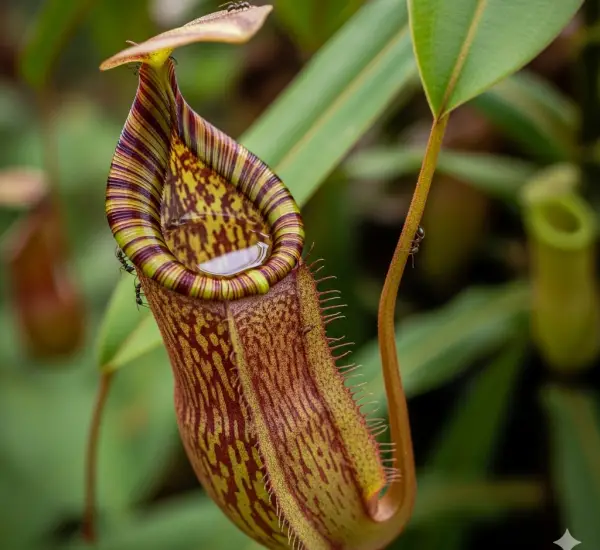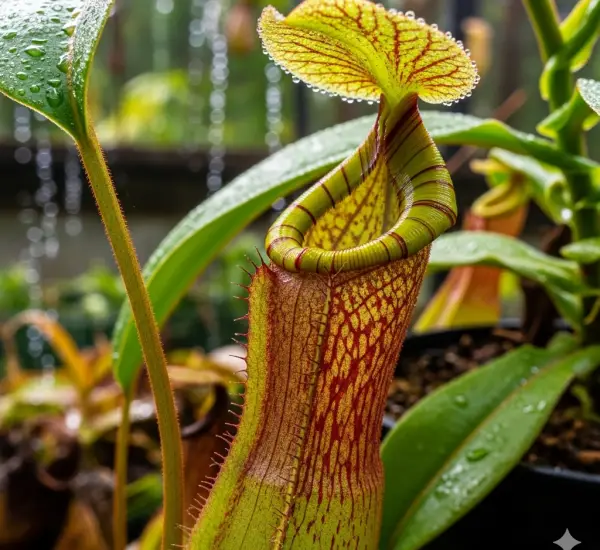How to Recycle and Use Kitchen Waste to Grow Vegetables Efficiently
Growing your own vegetables at home can be both rewarding and sustainable—especially when using recycled kitchen waste as fertilizer. Not only does this method reduce household waste, but it also enriches your soil, improves plant growth, and saves money on chemical fertilizers. Here’s how you can recycle kitchen scraps and turn them into a nutrient-rich foundation for your home garden.
Why Kitchen Waste Matters
Every day, households generate a considerable amount of kitchen waste—vegetable peels, fruit scraps, eggshells, coffee grounds, and more. Instead of sending this waste to the landfill, it can be repurposed into compost, organic liquid fertilizer, or directly used to nourish your vegetable garden.
This approach not only improves your soil’s fertility but also promotes eco-friendly gardening practices that reduce environmental impact.
Step-by-Step Guide to Recycling Kitchen Waste for Gardening
1. Separate Organic Waste Properly
Start by setting aside a container in your kitchen to collect organic waste. Suitable items include:
-
Vegetable peels (e.g., carrot, potato, cucumber)
-
Fruit scraps (banana peels, apple cores, etc.)
-
Coffee grounds and tea leaves
-
Crushed eggshells
-
Spoiled vegetables (avoid oily or spicy cooked food)
Avoid adding meat, dairy, or greasy food as they attract pests and may slow down decomposition.
2. Create a Simple Compost System
You don’t need a large garden to compost. A plastic bin, bucket, or even old clay pots can be used.
-
Drill or punch small holes for airflow.
-
Add your kitchen waste along with dry materials like shredded newspaper, dry leaves, or sawdust to balance moisture and carbon content.
-
Turn the contents every few days to accelerate decomposition.
After 2–4 weeks (depending on weather and material), you’ll notice the waste breaking down into dark, crumbly compost. This is your organic “black gold.”
3. Make Liquid Fertilizer from Kitchen Scraps
Besides compost, you can make liquid fertilizer for a quick nutrient boost.
Option 1: Banana Peel Fertilizer
-
Chop banana peels and soak them in water (in a jar or bucket) for 3–5 days.
-
The water becomes rich in potassium and phosphorus.
-
Strain and pour directly at the base of vegetable plants.
Option 2: Vegetable Scrap Fermented Water
-
Fill half a bucket with chopped vegetable scraps and top it with water.
-
Cover loosely and let it ferment for 7–10 days.
-
Stir daily. After fermentation, dilute 1 part liquid with 2 parts water before use.
This fermented mix boosts soil microbes and provides fast-absorbing nutrients for leafy greens and fruiting vegetables.
Direct Use of Certain Kitchen Waste
Some kitchen waste can be directly buried or used around plants without needing to compost:
-
Eggshells: Rinse, crush, and sprinkle around plant roots to add calcium and deter slugs.
-
Used tea leaves and coffee grounds: Rich in nitrogen, they improve soil texture and attract earthworms.
-
Banana peels: Cut into small pieces and bury near the root zone of fruiting vegetables like tomatoes and peppers.
-
Onion and garlic skins: Although strong in smell, they can be dried and added to compost or soaked to create a pest-repelling spray.
Best Practices for Efficient Results
-
Balance green and brown waste: For effective composting, balance “green” waste (kitchen scraps) with “brown” waste (dry leaves, cardboard).
-
Avoid excess water: Kitchen waste tends to be moist. Add dry material to prevent soggy, smelly compost.
-
Chop scraps smaller: Smaller pieces break down faster, speeding up the composting process.
-
Cover compost or bury waste: This reduces odors and keeps pests away.
Ideal Vegetables to Grow with Kitchen Waste
Vegetables that benefit most from nutrient-rich compost or organic fertilizer include:
-
Leafy greens: Spinach, kale, lettuce
-
Root crops: Carrots, beets, radishes
-
Fruiting plants: Tomatoes, peppers, cucumbers
-
Herbs: Basil, parsley, coriander
With consistent use of recycled kitchen waste, you’ll see improvements in plant health, yield, and soil structure over time.
Final Thoughts
Recycling kitchen waste for vegetable gardening is one of the simplest and most effective ways to practice sustainable living. By turning everyday scraps into natural fertilizers, you reduce household waste, cut down on chemical usage, and grow healthier, more vibrant vegetables right at home. Whether you’re gardening in a backyard, balcony, or a few pots, these techniques can make a big difference.



